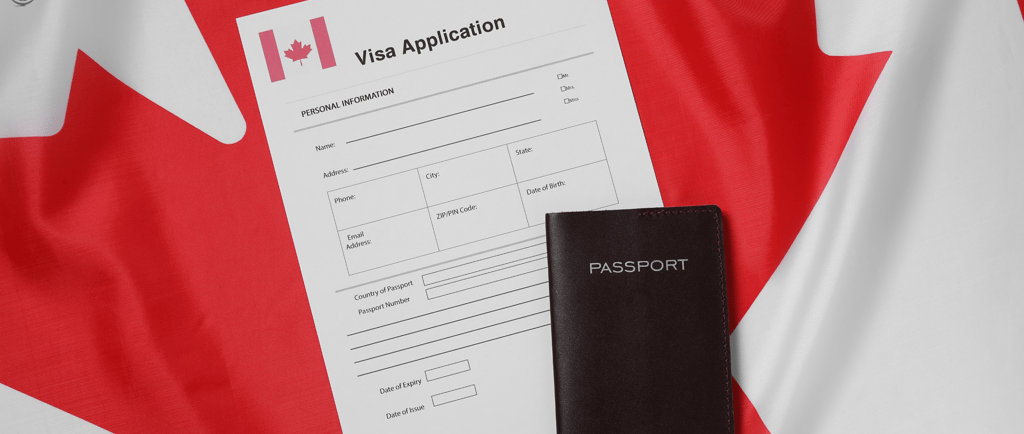Canada's Updated Visa Regulations: A Breakdown of the Changes to Multiple-Entry Visas.
Canada has rolled out some big changes to its visa rules, especially for multiple-entry visas, making it easier for travelers to apply and access the country. The new guidelines mean these visas can now be valid for longer periods, so visitors can come and go without having to reapply all the time.


Canada has rolled out some big changes to its visa rules, especially for multiple-entry visas, making it easier for travelers to apply and access the country. The new guidelines mean these visas can now be valid for longer periods, so visitors can come and go without having to reapply all the time. Plus, there are updated eligibility requirements that simplify the process for frequent travelers. On top of that, there are better support services in place to help applicants with clearer info and guidance during the application journey. These updates show Canada’s dedication to boosting tourism and strengthening international ties while keeping immigration policies secure. So, if you're looking to explore all that Canada has to offer, these changes create a friendlier atmosphere for tourists and business travelers alike.
As for the multiple-entry visas, it used to be that applicants automatically qualified for one. This visa lets you enter and exit Canada multiple times, with a max validity of up to 10 years. But now, that’s not the default anymore.
IRCC officials will decide whether to grant a single-entry or multiple-entry visa based on the individual applicant's circumstances. This new approach focuses on evaluating each case rather than applying a blanket rule.
Key Differences Between Single-Entry and Multiple-Entry Visas
Single-Entry Visa: This type of visa allows you to enter Canada just once. After you leave, you’ll need to apply for a new visa if you want to come back.
Multiple-Entry Visa: With this visa, you can enter Canada multiple times while it’s valid. You can keep visiting without needing to get a new visa each time, as long as it’s still active.
Factors That Determine Visa Issuance
The IRCC looks at several factors to decide which visa to give and how long it will last. A multiple-entry visa might not last the full 10 years, depending on things like when your travel documents or biometrics expire.
Things That Affect Visa Decisions
Purpose of Visit:
Is the trip a one-off, like a conference or vacation, or will the person be coming back often?
Are there compassionate reasons, like visiting a seriously ill family member?
Is the applicant a short-term worker or student who doesn’t need certain permits?
Applicant’s Status and Stability:
What’s the applicant’s current situation in their home country? Do they have strong ties to their home or Canada that could change?
Are there any political or economic issues in the applicant’s home country that might affect the decision?
Financial Considerations:
Does the applicant have steady financial resources, like a stable job, to support multiple trips?
If someone in Canada is covering the applicant’s costs, is there proof of their relationship? Can the host financially support multiple visits?
In business cases, has the employer confirmed financial backing with a formal letter for a conference or meeting?
Understanding the Temporary Resident Visa (TRV)
A Temporary Resident Visa (TRV) is a document issued by a Canadian visa office that gets stamped in your passport. It shows that you meet the criteria for a temporary visit to Canada.
But keep in mind, just having a TRV doesn’t mean you’re guaranteed entry. Border officers have the final say and will evaluate your eligibility when you arrive.
Visa Approval Key Factors
When reviewing a visa application, IRCC officers look at several key aspects beyond just why you’re visiting and your financial situation. Here are some things to consider:
Ties to Your Home Country: It’s important to demonstrate strong connections back home, like family, a job, or property, to prove you intend to return after your trip.
Clear Travel Purpose: Be specific about why you’re visiting and back it up with supporting documents, whether it’s for business, tourism, or visiting family.
Proof of Sufficient Funds: Show that you have enough money to support yourself while you’re in Canada.
Personal Background: Any relevant details about your history, including previous travel experiences, will be taken into account.
Medical Fitness: Ensure there are no health issues that could affect your visa eligibility.
Honest Information: Always provide accurate and truthful information in your application to avoid any complications.
Compliance with Immigration Rules: Having a clean immigration history is vital. Make sure you’ve followed all past visa conditions and regulations.
